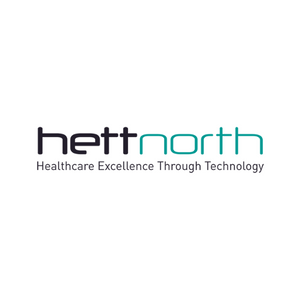In an era dominated by technological advancements, the healthcare landscape in the United Kingdom is undergoing a profound transformation. From streamlined processes to improved patient care, technology is playing a pivotal role in enhancing healthcare outcomes across the nation. In this blog post, we delve into the ways in which technology is revolutionising the UK healthcare system, bringing about positive changes and promising a healthier future.
What Technology is Improving Healthcare Outcomes?
1. Telemedicine: Bridging Gaps for Better Access to Healthcare
Telemedicine has emerged as a beacon of hope, particularly in the expansive and diverse UK healthcare system. With virtual consultations, patients now have unprecedented access to healthcare professionals without the constraints of geographical distances. This not only increases convenience but ensures timely medical advice and intervention, contributing to improved healthcare outcomes.
In a country where rural areas may face challenges in accessing healthcare facilities, telemedicine becomes a lifeline. It facilitates early intervention, reduces unnecessary delays, and fosters a proactive approach to managing health concerns, ultimately leading to better patient outcomes.
2. Electronic Patient Records (EPRs): A Digital Revolution for Informed Care
The adoption of Electronic Patient Records (EPRs) has ushered in a new era of efficiency and accuracy in patient care. These digital records consolidate comprehensive patient information, ensuring that healthcare providers have a holistic view of an individual's medical history. This streamlines decision-making processes, minimizes errors, and enhances the overall quality of care.
EPRs also promote seamless collaboration among healthcare professionals. The ability to share and access patient data across different departments and institutions ensures that everyone involved in a patient's care is on the same page. This interoperability not only saves time but significantly contributes to improved healthcare outcomes.
3. Artificial Intelligence (AI): Precision Diagnoses for Optimal Treatment
Artificial Intelligence is reshaping the diagnostic landscape in the UK healthcare system. AI algorithms can analyse vast datasets at remarkable speeds, aiding healthcare professionals in making early and precise diagnoses. In fields like radiology, AI applications are enhancing the interpretation of medical images, leading to faster and more accurate results.
The efficiency of AI in diagnostics not only expedites the diagnostic process but also reduces the margin of error. Timely and accurate diagnoses are paramount in improving healthcare outcomes, allowing for swift initiation of appropriate treatment plans. The integration of AI into diagnostics is a testament to technology's power to enhance patient care in the UK.
4. Wearable Health Technology: Empowering Patients for Better Health Management
Wearable devices, such as fitness trackers and smartwatches, have become ubiquitous in the UK. Beyond their popularity as lifestyle gadgets, these devices are making significant contributions to healthcare outcomes. By continuously monitoring vital signs and health metrics, wearables empower individuals to actively engage in their health management.
The data collected from wearables not only provides valuable insights for healthcare providers but also enables personalised treatment plans. The preventive aspect of wearable health technology is particularly impactful, as individuals can make informed lifestyle choices based on real-time feedback, ultimately contributing to better health outcomes.
5. Virtual Reality (VR): A Therapeutic Revolution in Patient Care
Virtual Reality is not just a technological marvel for entertainment; it is finding meaningful applications in patient therapy. In the UK, VR is being leveraged to alleviate pain, reduce anxiety, and aid in patient rehabilitation. Whether used during medical procedures or as part of mental health therapy, VR technology has demonstrated its potential to improve patient well-being.
The immersive experiences created by VR contribute to a more positive patient journey. By reducing stress and enhancing the mental well-being of patients, VR is proving to be a valuable tool in improving overall healthcare outcomes in the UK.
Embracing a Future of HealthTech Excellence
As technology continues to evolve, the symbiotic relationship between innovation and healthcare outcomes becomes increasingly evident in the UK. From telemedicine breaking down geographical barriers to AI offering precision diagnoses, each technological stride contributes to a healthcare system that is more efficient, accessible, and patient-centric.
The ongoing integration of technology into the fabric of the UK healthcare system is not merely a trend; it is a paradigm shift towards a future where the well-being of individuals is at the forefront. Embracing these advancements isn't just a choice; it is a commitment to ensuring that the citizens of the UK receive the best possible care, ultimately leading to healthier lives and brighter futures.
%20(1).png?width=500&height=58&name=HETT%20insights%20logo%20RGB-04%20(1)%20(1).png)


